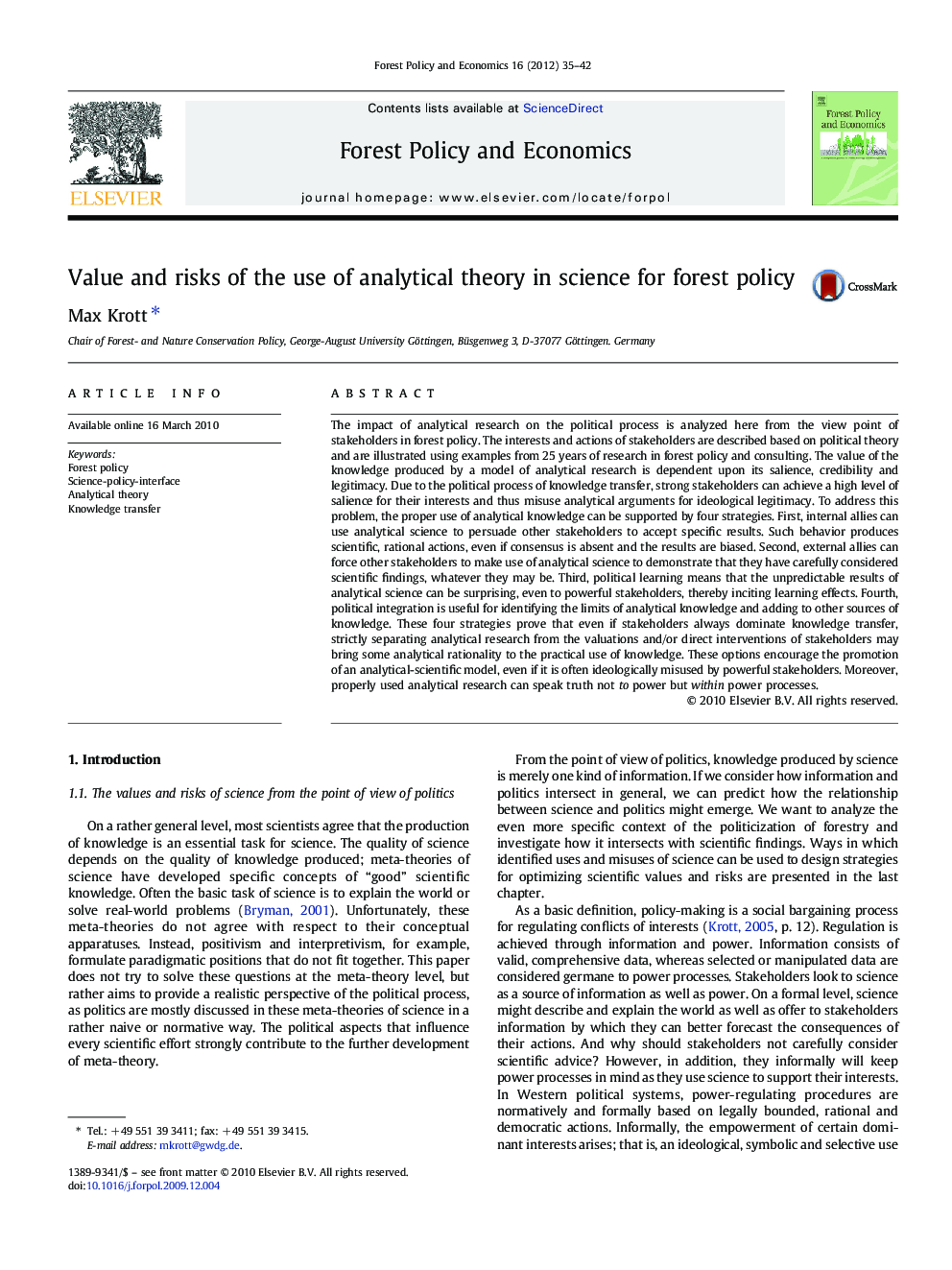| کد مقاله | کد نشریه | سال انتشار | مقاله انگلیسی | نسخه تمام متن |
|---|---|---|---|---|
| 91157 | 159751 | 2012 | 8 صفحه PDF | دانلود رایگان |

The impact of analytical research on the political process is analyzed here from the view point of stakeholders in forest policy. The interests and actions of stakeholders are described based on political theory and are illustrated using examples from 25 years of research in forest policy and consulting. The value of the knowledge produced by a model of analytical research is dependent upon its salience, credibility and legitimacy. Due to the political process of knowledge transfer, strong stakeholders can achieve a high level of salience for their interests and thus misuse analytical arguments for ideological legitimacy. To address this problem, the proper use of analytical knowledge can be supported by four strategies. First, internal allies can use analytical science to persuade other stakeholders to accept specific results. Such behavior produces scientific, rational actions, even if consensus is absent and the results are biased. Second, external allies can force other stakeholders to make use of analytical science to demonstrate that they have carefully considered scientific findings, whatever they may be. Third, political learning means that the unpredictable results of analytical science can be surprising, even to powerful stakeholders, thereby inciting learning effects. Fourth, political integration is useful for identifying the limits of analytical knowledge and adding to other sources of knowledge. These four strategies prove that even if stakeholders always dominate knowledge transfer, strictly separating analytical research from the valuations and/or direct interventions of stakeholders may bring some analytical rationality to the practical use of knowledge. These options encourage the promotion of an analytical-scientific model, even if it is often ideologically misused by powerful stakeholders. Moreover, properly used analytical research can speak truth not to power but within power processes.
Journal: Forest Policy and Economics - Volume 16, March 2012, Pages 35–42